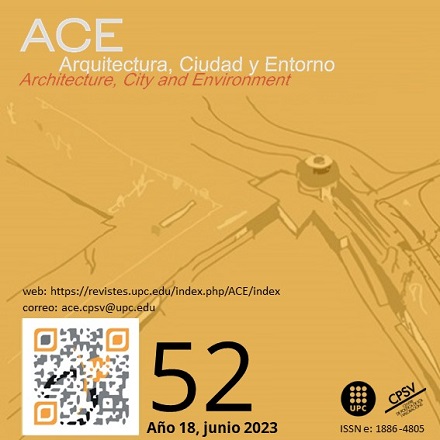Influence of Simulated Natural Light on Mood and Well-being Case study at Obos Living Lab, Oslo, Norway
DOI:
https://doi.org/10.5821/ace.18.52.11923Keywords:
led sunlight simulation, circadian light, well-being, human perceptionAbstract
Northern regions deal with low solar intensity and low solar angles, accentuating health and well-being issues such as sleeping problems or even seasonal affective disorder (SAD). Consequently, it showcases the urge for an artificial lighting system that can back up sunlight deficiency and address health concerns. Also, verisimilar sunlight simulation data is still scarce but has shown positive implications for individuals, as in accordance with other references. This article comprises the first part of an experiment at Obos Living Lab in Oslo, Norway. It uses a prototype that proposes to simulate natural light and evaluate potential impacts on subjects. By monitoring a group of participants, a series of questionnaires were carried out, taking into account the user's perception of the experimental space. The main focus was on the light and atmosphere generated by the prototype. Through parameters such as energy levels and motivation, it was possible to find correlations within a time frame to identify if there were general and individual improvements in well-being. Results reinforce the importance of simulated sunlight as it achieves positive psychophysiological effects on individuals. Therefore, the prototype could simulate sunlight with a natural quality of light.
Published
Issue
Section
License
| INTELECTUAL PROTECTION CRITERIA |
At this moment, it is count with the "Oficina Española de Patentes y Marcas", while global protection it is being processed by the World Intelectual Property Organization (OMPI/WIPO). Nevertheless the International Standard Serial Number Office (ISSN) has given the following numbers ISSN: 1886-4805 (electronic version) and 1887-7052 (paper version). All articles will be peer reviewed, using double blind reviewing. |
| COPYRIGHT |
The article contents and their comments are authors exclusive liability, and do not reflect necessarily the journal editor commitee's opinion. All ACE published works are subject to the following licence CC BY-NC-ND 3.0 ES http://creativecommons.org/licenses/by-nc-nd/3.0/es/ It implies that authors do not hold nor retain the copyright without restrictions but only those included in the licence. |


































